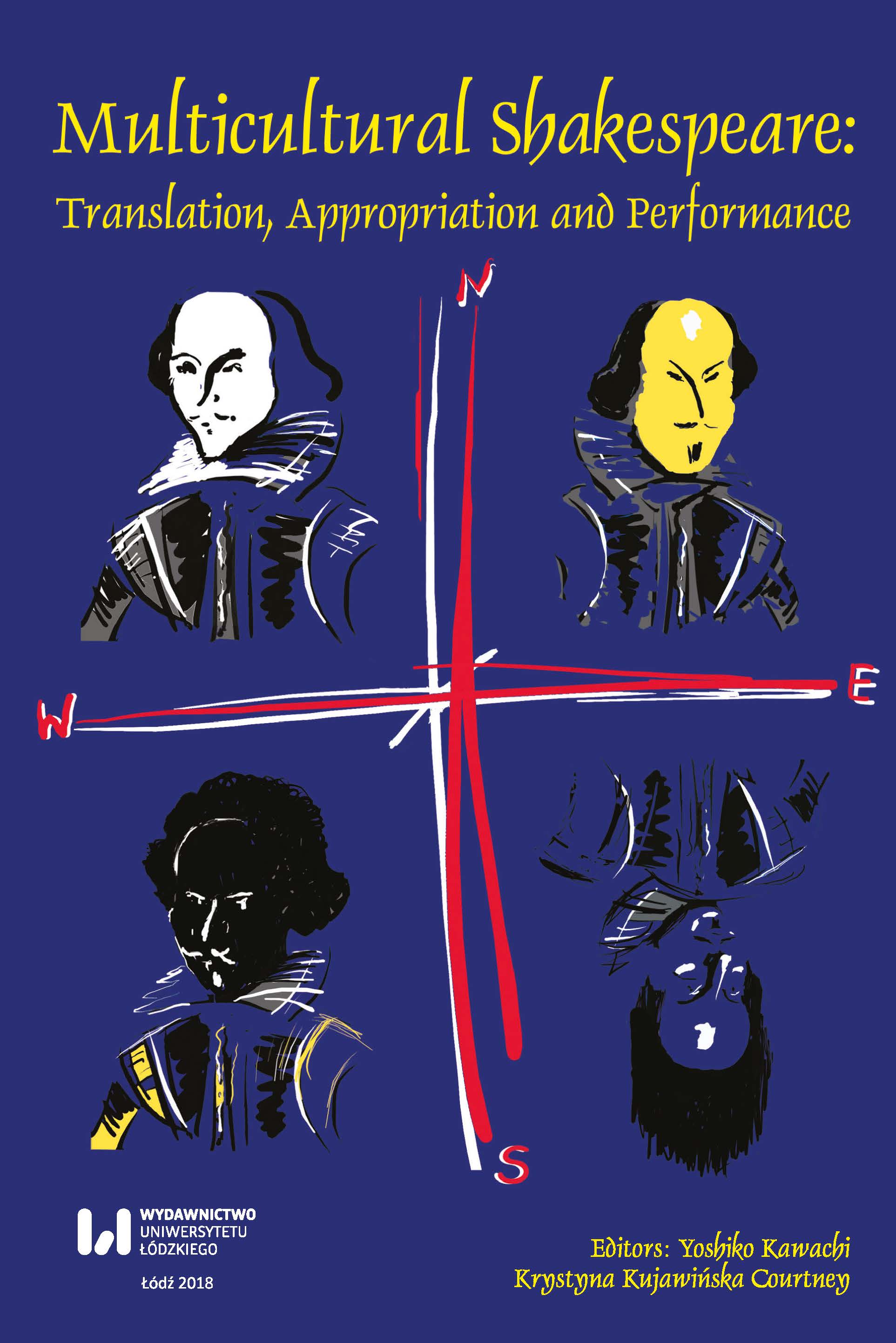Grzegorz Wiśniewski’s Production of Richard III in Teatr Jaracza in Łódź—Textual Authority, the “Director's Cut”, and Theatre Status
DOI:
https://doi.org/10.18778/2083-8530.17.07Słowa kluczowe:
Richard III, Grzegorz Wiśniewski, Teatr Jaracza, cultural authority, intertextuality, performanceAbstrakt
Grzegorz Wiśniewski’s 2012 Richard III in Teatr Jaracza in Łódź was a very successful production with critics and audiences alike. At the 2012 Gdańsk Shakespeare Festival it won the Golden Yorick, a prestigious Polish award for the best staging of a Shakespearean play in the season. Wiśniewski, a renown Polish theatre director and professor at the National Film School in Łódź, has his own way of understanding theatre, its role in culture, and Shakespeare’s place in it. Wiśniewski believes in the theatre of the middle path, as he calls it, that is neither classical/conservative, nor radically avantgarde. He wants to attract wide audiences and offer them intellectual and well-balanced cultural entertainment. Without diminishing the weight of such cultural and literary icons as Shakespeare, he vivisects texts to make productions that can easily speak to a contemporary audience. This paper analyzes Wiśniewski’s Richard III to show how the director manages to achieve balance between his own auteur power, the authority and complexity of Shakespeare’s text, and theatre’s cultural mission.
Pobrania
Bibliografia
Boose, Lynda E. “The Family in Shakespeare Studies; or—Studies in the Family of Shakespeareans; or—The Politics of Politics.” Renaissance Quarterly 40.4 (1987): 707-742. Print.
Google Scholar
Cieślak, Magdalena and Agnieszka Rasmus. “King Richard III.” Shakespeare Bulletin 31.3 (Fall 2013): 494-499. Print.
Google Scholar
Gieleta, Michał. 2013. “Michał Gieleta: Nie obraziłem się na polski teatr” (wywiad) [Michał Gieleta: I didn’t take offence with the Polish theatre” (an interview)]. Wysokie Obcasy (19 April 2013). http://www.wysokieobcasy.pl/wysokie-obcasy/1,53668,13686392 Michal_Gieleta__Nie_obrazilem_sie_na_polski_teatr.html (accessed 14 April 2015). Web.
Google Scholar
Kott, Jan. Shakespeare Our Contemporary. Garden City, New York: Doubleday & Company, Inc., 1964. Print.
Google Scholar
Kujawińska Courtney, Krystyna, Magdalena Cieślak, Agnieszka Rasmus and Monika Sosnowska. Łódź Szekspirowi w 450. rocznicę urodzin. Łódź: Łódzkie Towarzystwo Naukowe, Wydawnictwo Uniwersytetu Łódzkiego, 2014. Web.
Google Scholar
Orgel, Stephen. The Authentic Shakespeare: And Other Problems of the Early Modern Stage. London and New York: Routledge, 2002. Print.
Google Scholar
Shakespeare, William. Henry V. The Complete Works of William Shakespeare. MIT. Web.
Google Scholar
Shakespeare, William. Henry VI Part 3. The Complete Works of William Shakespeare. MIT. Web.
Google Scholar
Shakespeare, William. Macbeth. The Complete Works of William Shakespeare. MIT. Web.
Google Scholar
Shakespeare, William. Richard III. The Complete Works of William Shakespeare. MIT. Web.
Google Scholar
Sinfield, Alan. “Royal Shakespeare: Theatre and the Making of Ideology.” Political Shakespeare. New Essays in Cultural Materialism. Eds. Jonathan Dollimore and Alan Sinfield. Manchester University Press, 1985. 158-181. Print.
Google Scholar
Webster, John. The Duchess of Malfi. The Project Gutenberg EBook. Web.
Google Scholar
Worthen, W.B. Shakespeare and the Authority of Performance. Cambridge University Press, 1997. Print.
Google Scholar
Worthen, W.B. “Shakespeare 3.0: Or Text Versus Performance, the Remix.” Alternative Shakespeares 3. Ed. Diana E. Henderson. London and New York: Routledge. 2008. 54-77. Print.
Google Scholar
Pobrania
Opublikowane
Jak cytować
Numer
Dział
Licencja

Utwór dostępny jest na licencji Creative Commons Uznanie autorstwa – Użycie niekomercyjne – Bez utworów zależnych 4.0 Międzynarodowe.












